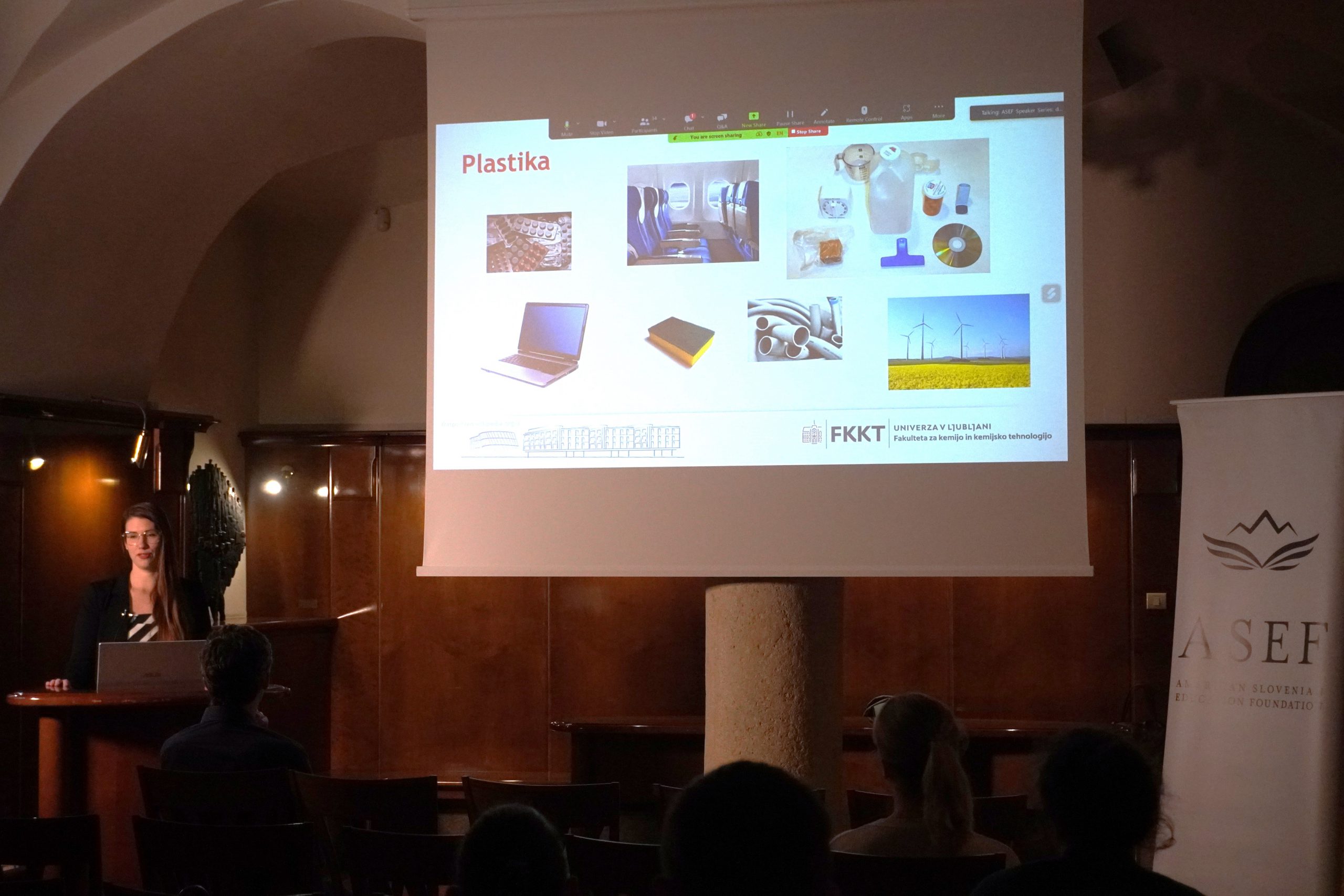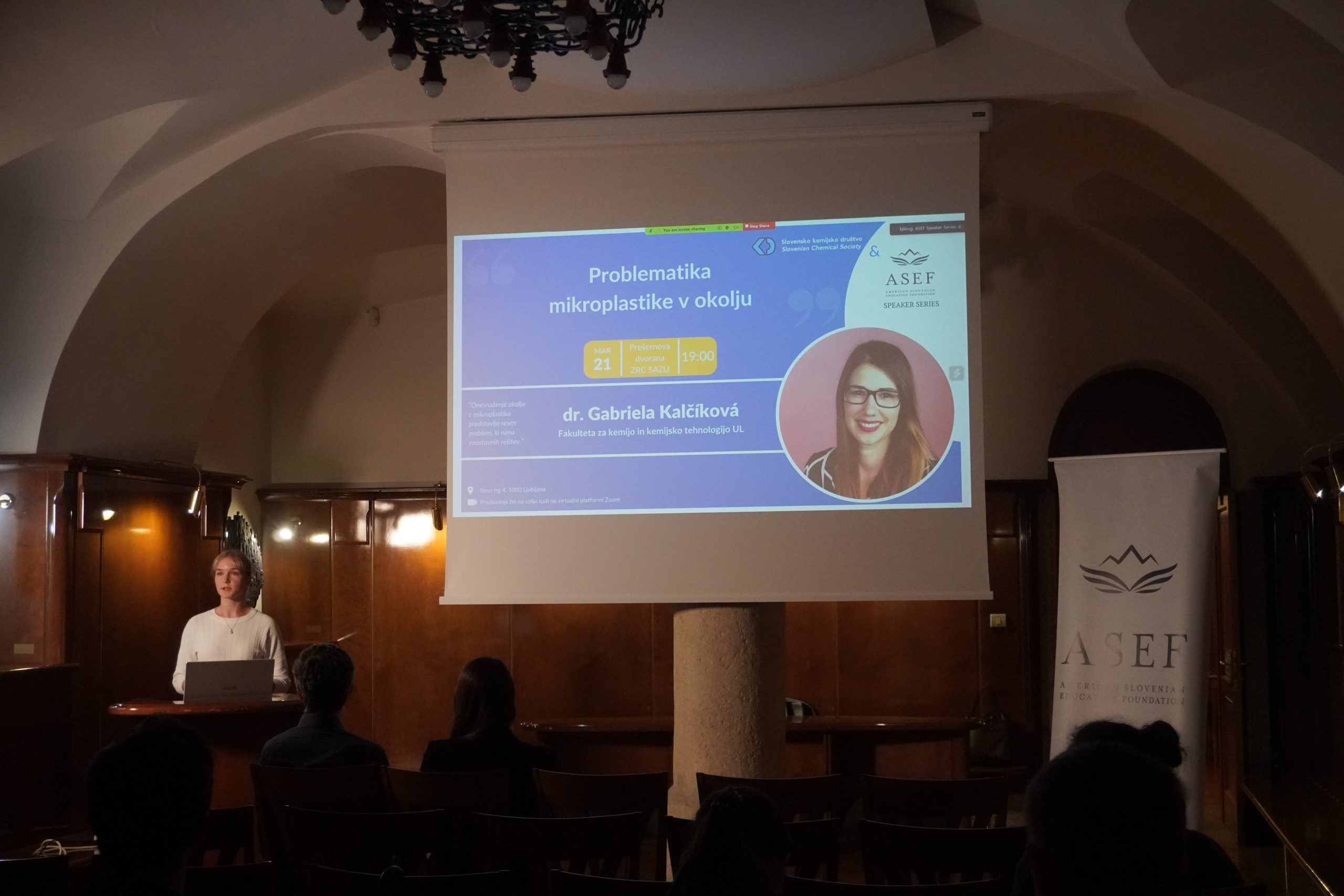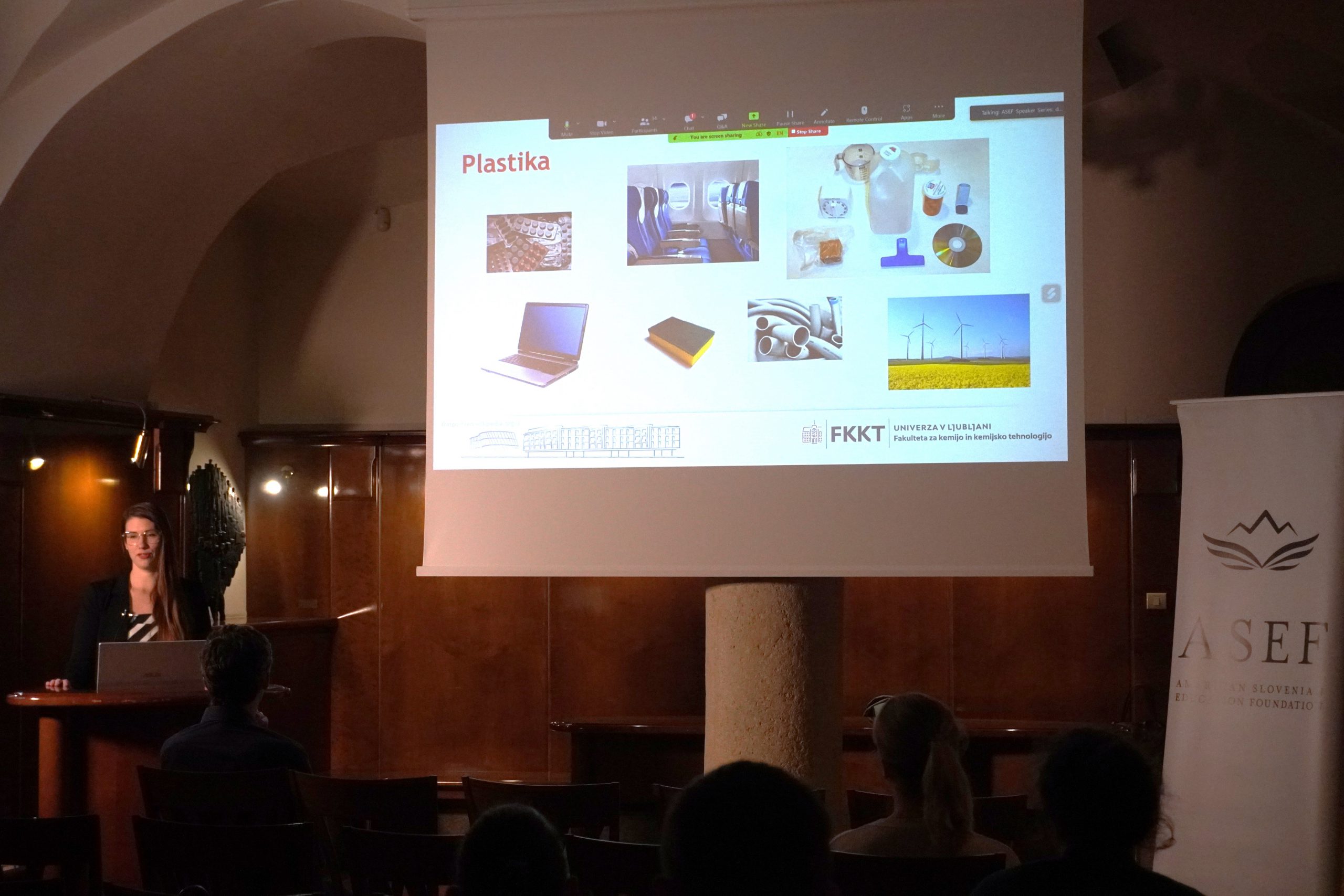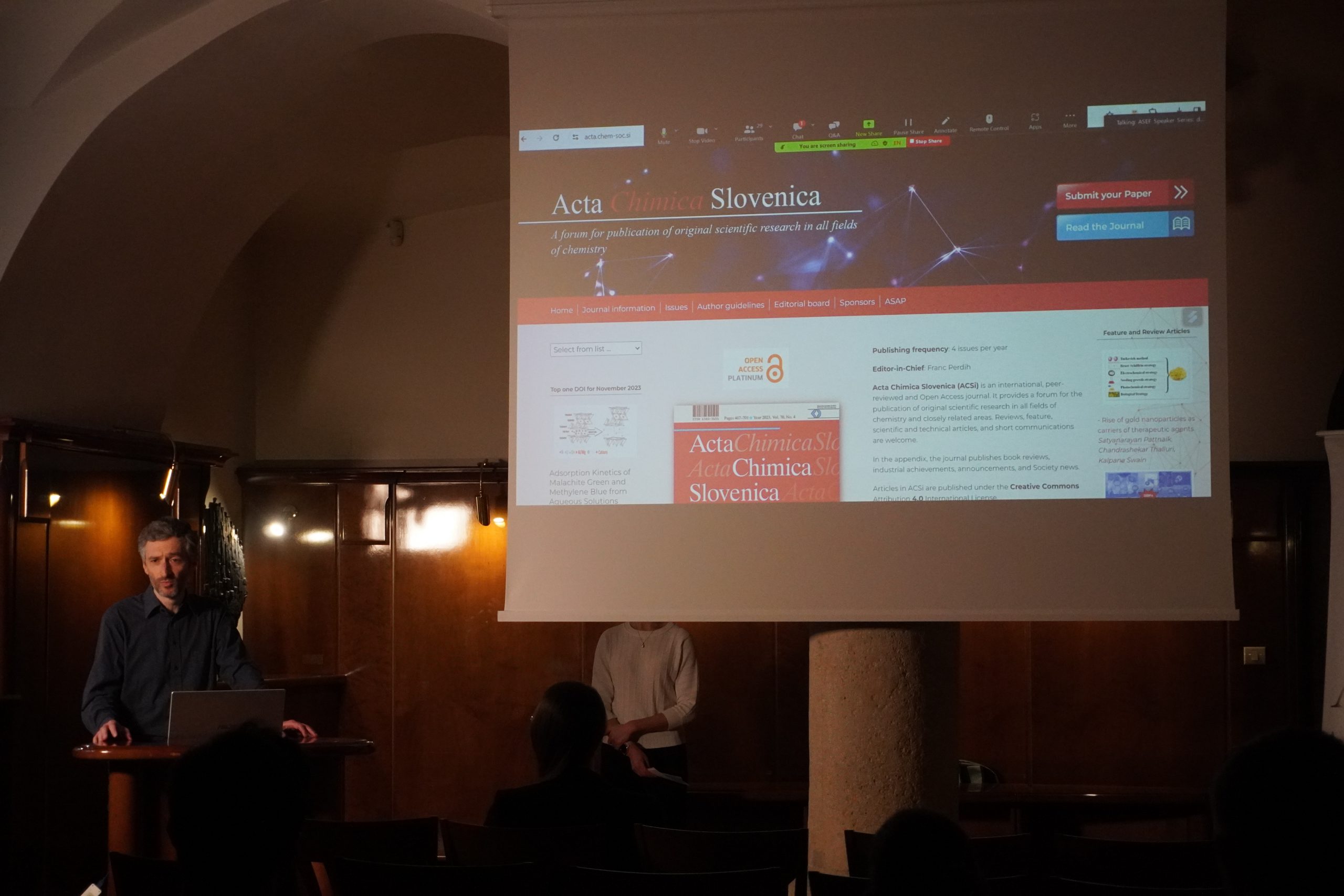
Dr Gabriela Kalčíková: The issues of microplastics in the environment
On Thursday, March 21, in cooperation with the Slovenian Chemical Society, a lecture took place as part of the ASEF Speaker Series. The popular science lecture entitled “The issues of microplastics in the environment”, was delivered by Dr Gabriela Kalčíková from the Faculty of Chemistry and Chemical Technology of the University of Ljubljana.
An introductory speech was delivered by Dr Mark Štrok, a representative of the Slovenian Chemical Society, president of the Environment Section, researcher and head of the Radiochemistry Laboratory of the Jožef Štefan Institute. He briefly presented the Slovenian Chemical Society and some of their numerous activities, including the renowned scientific journal Acta Chimica Slovenica. He invited all participants to the 2024 Slovenian Chemistry Days, which will be held this year in Portorož. Some of the objectives of the Environment Section are to improve the awareness of the general and professional public about topics related to environmental chemistry and to promote and support the correct use of chemistry for assessing and solving environmental issues.
After the opening speech, the moderator introduced Dr Gabriela Kalčíková and her work as an environmental engineer, which has focused on solving problems related to microplastic pollution. In her research on microplastic pollution, Dr Kalčíková uses advanced approaches of microplastic characterization, (eco)toxicity testing, evaluation of changes in microplastics in the environment (aging), and develops methods for removing microplastics from the environment. She is currently leading three national projects and two international projects in this field.
She has published many peer-reviewed scientific articles in international journals, and she also collaborates with many institutions abroad, including the University of Kaiserslautern-Landau in Germany, CEITEC and RECETOX in the Czech Republic, TU Wien in Austria, and Korea University in South Korea. She collaborated with the SAPEA organization in the preparation of a report on microplastics for the European Commission and with UNEP in the preparation of a report on projects in the field of plastics/microplastics.
Dr Kalčíková began her lecture with a presentation of the history of plastic, from its invention to the various industrial, household and technological innovations it has brought about. In addition, she presented a projection of the future of this material, which indicates an unparalleled production volume. Despite the practicality of plastic and its derivatives, its production and handling of the material has had significant negative environmental and economic consequences.
She presented the fragmentation of plastic, which can be attributed to various mechanical influences, biodegradation, thermal oxidation, photodegradation and hydrolysis. Currently, one of the best-known results of such fragmentation processes is precisely microplastics.
After the processes of formation of microplastics and their various sources, the lecturer presented past research on the presence of microplastics in the environment and living organisms. The lecture also touched on the biotic and abiotic aging of microplastics, which leads to a change in the material in the natural environment and the formation of a biofilm. There is also an interaction between microplastics and other pollutants in the environment, such as metals, nanoparticles and organic pollutants.
Conclusing the lecture, Dr Kalčíková also explained possible solutions against microplastic pollution, such as legal bans, new forms of detection, education and public awareness. She also presented the work of her research group “Planterastics” at the Faculty of Chemistry and Chemical Technology of the University of Ljubljana. She invited all participants to visit the MICROPLASTICdays at the Faculty of Chemistry and Chemical Technology of the University of Ljubljana. To register for the event, visit the Planterastics website.
The event took place in a hybrid form, via Zoom and in-person at ZRC SAZU, and was moderated by Zala Perko.
The event was organized with the support of the Government Office for Slovenians Abroad and the Office of the Republic of Slovenia for Youth.




